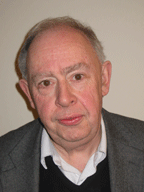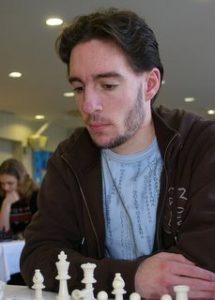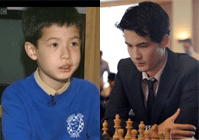
We are indebted to renowned chess historian Brian Denman for providing the first part of this potted history of junior chess in Sussex up until the late 1980’s.
Brian leaves the story at a low point in the early 1990s. Enter stage left Colin Rendle, Colin Harding, Tim Greenhill, Melanie Moore and Simon Deere who took inspiration from activities in Kent and injected considerable energy in revitalising junior chess in the county, setting up the organisation which became the Sussex Junior Chess we know today.
Many of the names mentioned live on today – the Butler Cup, Sadd Cup and Wilson Cup are still awarded annually as part of our inter-schools championships.
More information about the personalities mentioned here, and others who feature on our various trophies, is available by following the links at the foot of the article.
A History of Junior Chess in Sussex by Brian Denman
The earliest known school match in this country was played by correspondence between Brighton College and Shrewsbury School in about 1849. There was in fact little emphasis on junior chess in Victorian England. Inter-school matches were virtually non-existent for most of the time and if you were a promising young player, your best chance of advancement was to join a chess club which had mainly adults in it. In 1906 Henry Butler, who was one of the early pioneers of the Sussex Chess Association, presented a cup for school teams in Sussex, though it is unlikely that there were many entries at that time.
An important breakthrough came in the early 1920s when the Hastings Chess Club began to arrange annual boys’ tournaments. Players came from far and wide to play in these junior events and after about ten years of these competitions they became known as the British Boys Championships.
In 1922 the Wilson Cup was presented to the Sussex Chess Association by an anonymous donor in memory of the chess career of William Wilson, a strong Sussex player. This was to be contested by the older boys in Secondary Schools in Sussex, while the Butler Cup was to be fought out by a younger age group.
In 1933 junior chess in Brighton received a remarkable stimulus. Col. Sir William Thomas Dupree, Bt., who had died in March of that year left a sum of large money to be divided amongst under 21 chess players in Brighton and Portsmouth. The first prize for the Brighton competition was £100, a very large sum of money in those days.
World War II probably retarded the growth of junior chess. Some chess clubs survived the blackouts and the risks of bombing, but a lot of the players were of an older generation with the young men being conscripted for the Forces.
The groundwork for a future boom in junior chess came in the years following the cessation of hostilities. In both Brighton and Hastings inter-schools leagues were started and in 1949 Sir Clarence Sadd, the president of the Sussex Chess Association presented a trophy for an individual Sussex Junior Championship. Chess in Sussex schools now flourished like never before and the county team was soon benefiting from an influx of promising young players. In 1948 Varndean Grammar School won the McArthur Cup. Although at that time the Brighton and Hastings chess clubs were not permitted to field their strongest players in the competition, this was nevertheless a remarkable achievement and one that has not been repeated.
The success of junior chess in the county continued through the 1950s and into the 1960s. If one was a young Sussex player in the 1960s, one could play in the Hastings Congress from the end of December to early January, the Bognor Congress at about Easter and the Eastbourne Congress at about the time of the August Bank Holiday. As well as the local junior chess leagues there was also the national Sunday Times schools’ competition, which several Sussex schools used to enter. In 1963 Hove Grammar School won the event in which a few hundred schools nationally used to participate.
After about two decades of great success in junior chess in the county the 1970s was a decade of decline. Local schools leagues became affected by the creation of large Comprehensive schools. As there were fewer schools, there were now fewer games in the schools’ competitions. There was, however, one bright spot in the creation of a Sussex Primary Schools Championship for under-11 pupils in the mid 1970s.
There was little sign of general improvement in the 1980s, though in 1987 Paul Watson, Paul Selby and Ian Mclean started holding annual Sussex U-18 and U-14 championships over a Bank Holiday weekend at Dorothy Stringer School in Brighton.
At first these events were very well supported, but the number of entries had been greatly reduced by the end of the century when it was decided to give the Crowborough junior advisers the chance to bolster the competitions. About the same time the Dupree Tournament came to an end in Brighton. The original prize money had not been greatly updated to take into account the rise in the cost of living and a decline in entries eventually led to its cessation. It is understood that the local council sought at the end to divert the funds to another purpose.
© Brian Denman 2009
1995 onwards

Meanwhile, in Hastings, 5 year old Thomas Rendle was attending St. Paul’s Primary – the same school which had nurtured GM Stuart Conquest. After some persuasion the school allowed him to join the chess club and he began competing in the only junior event of the year in the county at Ditchling, and the Hastings International Weekend Congress.
Finding a club which would welcome juniors was a problem, the nearest being Crowborough. Eventually, Thomas’s father Colin happened upon some leaflets for Kent junior events and quickly settled into their annual calendar of training days and tournaments. Thomas began to represent Kent in national events. With the support of his wife Catherine, and another Crowborough member Melanie Moore, the idea was hatched to give juniors in Sussex the same kind of opportunities as were available in Kent.
On 1st June 1995, Colin Rendle, Melanie Moore, Tim Greenhill, Colin Harding and Simon Deere met for the inaugural meeting of the Sussex Primary Schools Chess Action Committee. Aiming high, the first minute reads:
“Simon set the scene by stating that there were two areas for consideration:
Organisation of a Sussex Team, for under 11, and
Organisation of a Grand Prix series of events in Sussex.”
The title lasted only three months, becoming the snappier Sussex Junior Chess Association (and later still, Sussex Junior Chess), but the ambition lived on to see that early vision fulfilled. Advice was gratefully received from Kent Junior Chess Association, Tony Corfe (EPSCA), and IM Mike Basman (who created the original UK Chess Challenge, now the Delancey UK Schools Chess Challenge); parent volunteers came on board sharing their skills; and within nine months a Sussex under 9 team was competing in the EPSCA championships.
Interestingly, that first team sourced several players from Great Walstead and St. Lawrence schools – testament to the enthusiasm of Colin Harding and Michael and Margaret Tester respectively. Colin was still very active at Great Walstead up until his death in 2015, and the enthusiasm of the Testers lives on at St. Lawrence after their retirement. Both schools still regularly provide county level players.
The blue team strip appeared early 1997 along with the first constitution and formal committee structure. Affiliation to the Sussex County Chess Association (SCCA) followed in 1998 which officially delegated responsibility for all under 18 chess to the newly renamed Sussex Junior Chess. Later in 1998 the “Missing Bishop” newsletter was born, girls chess took off under the stewardship of Rod Draper, and Nick Barrowclough built the first website in the early days of the Internet.

The final piece of the jigsaw fell into place in 2002. James Hall, longstanding member of East Grinstead chess club, noticed the surge in junior chess was hampered by erratic or non-existent funding. James successfully lobbied his employer David Birt, proprietor of Deutsche Industrial based in Hastings. The resulting relationship resulted in sponsorship over many years until David’s retirement helping to secure the long term sustainability of SJC.
The rest, as they say, is history. Five year old Thomas Rendle went on to represent England and win the Terafinal as a junior before growing up to became chess coach and International Master Thomas Rendle. The chess career of GM David Howell from Seaford, now our president, also began at Sussex Junior Chess events. Since 1995, over fifty Sussex juniors have gone on to represent England …… but just as importantly, many hundreds more have had the opportunity to learn and play the game. From their ranks will come the club players of the future.